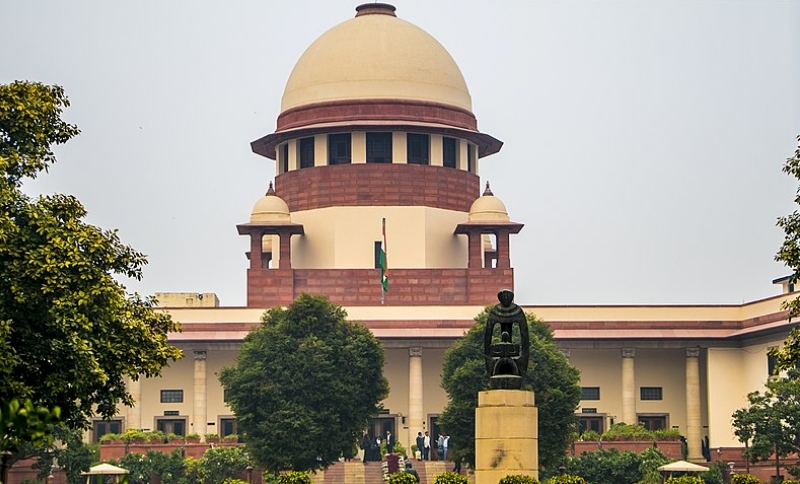 |
|
The ongoing crisis in Manipur has taken a dramatic turn with the emergence of leaked audio tapes allegedly implicating Chief Minister N. Biren Singh in inciting violence within the state. These tapes, reportedly shared by a whistleblower, have sparked a firestorm of controversy and led to a plea filed with the Supreme Court of India demanding a thorough investigation into the Chief Minister's alleged role in the escalating conflict. The gravity of the situation is underscored by the Supreme Court's decision to potentially advance the hearing of the plea, initially scheduled for February 7, 2025, demonstrating the urgency and sensitivity surrounding this matter. The Kuki Organization for Human Rights Trust, the petitioner in this case, is seeking a Special Investigation Team (SIT) probe to independently examine the contents of the tapes and determine the extent of the Chief Minister's involvement.
The legal battle surrounding these tapes is far from straightforward. Advocate Prashant Bhushan, representing the petitioner, argued for an urgent hearing, highlighting the petitioner's compliance with previous court directives to submit evidence. He painted a picture of ongoing harassment against the petitioner, emphasizing the critical need for swift action. However, Chief Justice of India Sanjiv Khanna, while acknowledging the urgency, requested a formal written application before advancing the hearing date. This procedural step, while seemingly routine, underscores the careful consideration the Supreme Court is giving to the legal arguments presented on both sides. The government, represented by Attorney General R. Venkataramani and Solicitor General Tushar Mehta, previously urged the court to dismiss the case, suggesting that the petitioner should have initially approached the Manipur High Court rather than directly filing with the Supreme Court. This argument highlights a crucial jurisdictional point in the Indian legal system, a point that the Supreme Court will have to consider during the hearing.
The core issue at the heart of this legal battle is the credibility and admissibility of the leaked audio tapes as evidence. The tapes purportedly contain conversations where CM Biren Singh is heard instigating violence, a claim that carries immense weight given the ongoing conflict and human rights concerns in Manipur. Establishing the authenticity of the tapes, verifying the identities of the speakers, and contextualizing the conversations within the larger political landscape will be crucial elements in the court's deliberation. The outcome of the Supreme Court's review will have profound implications, not only for the Chief Minister but also for the ongoing efforts to restore peace and stability in Manipur. A thorough investigation, regardless of the outcome, is vital to ensure accountability and address the root causes of the violence. The Supreme Court's decision, therefore, will be keenly watched by all stakeholders, including the people of Manipur, human rights organizations, and political observers across the nation.
Beyond the immediate legal ramifications, this case touches upon broader issues of governance, accountability, and the rule of law. The potential implication of a sitting Chief Minister in inciting violence raises serious questions about the integrity of the political system and its ability to effectively address internal conflict. The Supreme Court's role in this case transcends the mere adjudication of a legal dispute; it assumes a vital role in upholding the principles of justice and ensuring that those responsible for acts of violence are held accountable. The careful and deliberate approach adopted by the court underscores its commitment to due process while simultaneously recognizing the urgency of the situation and the need to address the serious allegations against the Chief Minister. The ultimate decision of the Supreme Court will set a precedent with far-reaching consequences, shaping future approaches to investigating allegations of official misconduct and addressing violence in conflict-ridden regions.
The impact of this case extends beyond the legal sphere, impacting the political landscape of Manipur and influencing public trust in governmental institutions. The public perception of the Chief Minister's actions and the perceived impartiality of the investigation will significantly impact the political stability of the region. If the allegations are substantiated, it could lead to widespread calls for the Chief Minister's resignation or even potential impeachment proceedings. Conversely, if the court dismisses the case or finds insufficient evidence to support the allegations, it could have the opposite effect, reinforcing the incumbent's position. Regardless of the court's ruling, the controversy surrounding the leaked tapes has already severely damaged public trust and will likely have lasting implications on the political climate in Manipur. Therefore, the transparency and impartiality of the investigation are crucial not only for upholding justice but also for restoring public confidence in the government.
Source: SC to review probe plea against Manipur CM over leaked tapes
